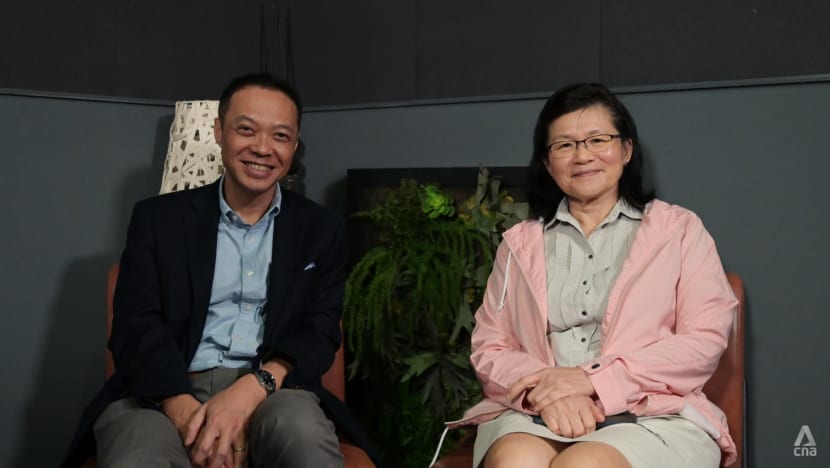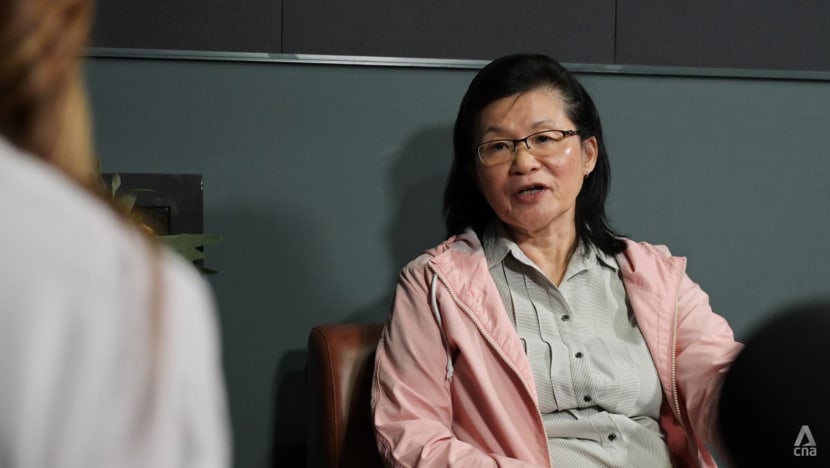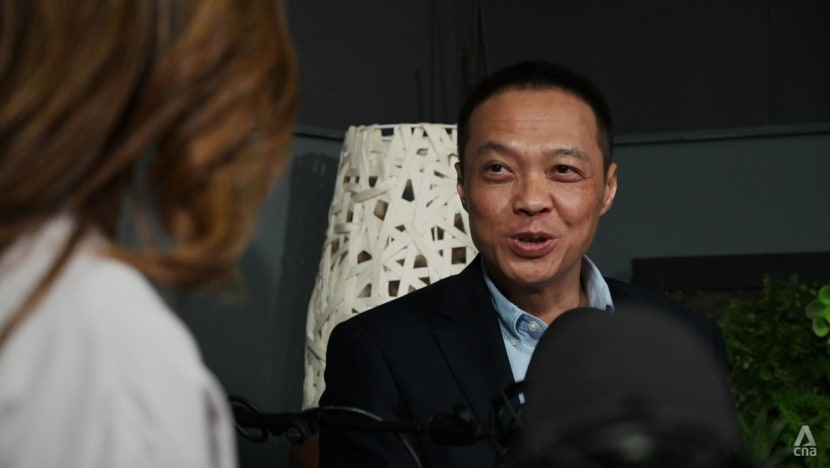Heart of the Matter: NCID chief and vaccine expert reflect on sacrifices and lessons in COVID-19 fight
Recently, frontline workers received a standing ovation in parliament for their contributions to Singapore’s battle against COVID-19. CNA’s Heart of the Matter gets up close with the people leading the fight to find out what it was really like in the “fog of war”.

Professor Ooi Eng Eong (right) and National Centre for Infectious Diseases (NCID) executive director Professor Leo Yee-Sin (left) recall working round-the-clock in the years battling COVID 19. (Photo: CNA/Marcus Mark Ramos)
SINGAPORE: The days of wearing masks and limited social gatherings during the three years of COVID-19 is like a fever dream for residents in Singapore. But those fighting hard in the trenches will not forget the long days, missed meals and making decisions while in a fog.
National Centre for Infectious Diseases (NCID) executive director Professor Leo Yee-Sin and Professor Ooi Eng Eong, who helped bring the COVID-19 vaccine to Singapore, spoke to CNA’s Otelli Edwards on the Heart of the Matter podcast, laying out what those years were like.
For Prof Leo, it was a case of juggling two shifts: Caring for the sickest patients in the NCID during the day and attending meetings with global experts late into the night in the early days of the pandemic.
“It was Chinese New Year’s Eve. Usually we have family gatherings. But that was also the time I attended the first World Health Organization (WHO) clinical network meeting, trying to understand the presentation of (COVID-19) cases,” said Prof Leo.
Life was a rollercoaster during that period. There were a lot of ups and downs. But I must say, the seatbelt was always there.

For Prof Ooi, an infectious diseases specialist, rushing to develop a COVID-19 vaccine within months, instead of years, was like “building a plane while flying it”.
His team was initially tasked with studying dengue, but pivoted to being part of the mammoth effort to bring in effective vaccines for Singapore.
“You're trying to learn: What would it take for a good vaccine to work against COVID-19? There's data coming out from labs, some of it is really good, some of it isn't so good … Whilst your own experiments are running at the same time. So, there is a lot of adjustment, a lot of finetuning as you go along,” said the Duke-NUS Medical School professor.
In the COVID-19 White Paper which was debated in parliament in March, Singapore’s vaccine strategy was highlighted as an area the country did well in.
What were the experts’ biggest takeaways from the pandemic?
For Prof Ooi, it came down to the need to have “deep pockets” in terms of vaccine development.
One of the things I learnt from working on this vaccine is that at least for now, you cannot replace that big financial pocket that you need to finish the race.

And for Prof Leo, it was the critical importance of highly specialised healthcare staff. Their expertise in caring for patients in the intensive care units cannot be easily replaced or trained for.
“(They are) highly skilled people, doctors and nurses, you can't find them and you can’t grow them within a month or even within a year ... How can we build up these very precious human resources and be able to retain them within the system?”
Here are some other highlights from their conversation:
WHEN DID THEY KNOW IT WAS SERIOUS?
Prof Leo: “It was very, very confusing during that period (December 2019) because a lot of the experts declared that there was no human-to-human transmission ... It was only later the World Health Organization (WHO) came out (to share) information that there indeed is human-to-human transmission. And that was the point that we realised that Singapore is in it.”
Prof Ooi: “I was in France (for a meeting on dengue), when the first case of COVID was reported in Singapore … At that time, I thought that this would be like SARS, that this will be contained quite quickly.”
Until mid-March when it started to get to Europe ... I thought, okay, I think this is now out of hand.
THE RACE TO FIND A VACCINE
Prof Ooi: “Work starts the minute I wake up ... The pressure was there. A (vaccine) project typically would take a year or so and now you’re trying to push it within four months.”
Prof Leo: “We are very fortunate to have a group of colleagues who actually put up their hand to be the first group of people to receive mRNA vaccine in NCID. They also gave us the ability to look into how to operationalise vaccine administrations and be able to scale it up.”
CHANGES NEEDED
Prof Ooi: "We have to change the way we approve drugs and vaccines ... To get from A to E, you have to pass through B, C, D. But if I can do an A-plus level, very rich and data that gives you a lot of confidence in what this product is, whether it's going to be able to work, is it going to be safe. Then I should be able to skip B, C, D and go straight to E.”
Prof Leo: “We can be better at how we connect up with our own community ... The public is hungry for information and of course, there’s elements of fear. How can we bring a message and bring the community closer? And how can we then combat misinformation during the outbreak?”
For more of the conversation, listen to the Heart of the Matter episode here.












